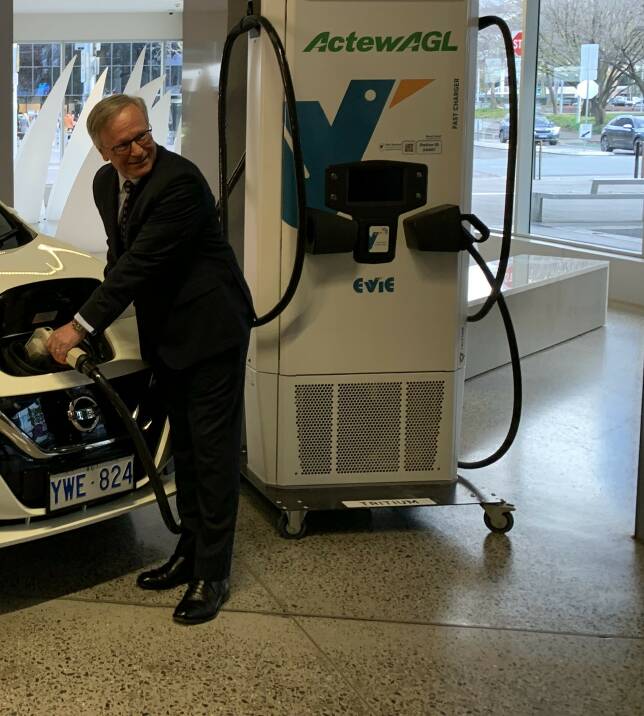One of Australia's fastest-growing and most ambitious EV charging network providers quietly increased its recharging prices up to 42 per cent on Thursday after doubling the size of its network in 2023.
Evie Networks, which in the ACT operates in partnership with ActewAGL, increased its 22kW charger prices to 50c per kiloWatt-hour, its 50kW chargers to 58c per kWh, 150kW chargers to 68c per kWh and 350kW ultra-fast chargers to 73c per kWh.
It would not reveal the reasons for the price increase although clearly the rising price of wholesale energy would be a significant contributing factor.
Evie has built Australia's largest fast-charging EV network across 14 towns and cities.
It has struck partnerships with ActewAGL, Hungry Jack's, Dan Murphy's, Ampol, Craveable Brands, North Sydney Council and even the shopping malls owned by AMP Capital.
It now boasts five times the number of sites compared with Ampol, four times more than BP, and three times more than NRMA.
Last year was the biggest growth year for Evie since 2019.
It added 102 new charging sites with a total of 266 charging points, establishing a presence in every state and territory. Notably, December alone saw the opening of 15 new charging sites, including two at Casey Market Town in Canberra's north.
Evie's principal financial backer is the St Baker Energy Innovation Fund, which is also a big investor in the Brisbane-based company which builds the chargers, Tritium.
The Australian taxpayer, too is, kicking the tin on Evie's expansion, with the Australian Renewable Energy Agency (ARENA) providing $8.85 million in public support during the first round of the "future fuels fast charging network", which wound up in October last year.

Chris Mills, the chief executive of the network, said the plan was not just to increase the geographic spread of its network, but boost their capacity "particularly those existing metro and highway sites which currently experience or are forecast to shortly experience sustained high levels of use".
The network's rollout however, has not been without its challenges.
In its "lessons learnt" public paper, the company was critical of the high cost of setting up charging stations and a lack of nationally consistency standards for power connections.
"The power connection process can take more than 6-8 months from initial inquiry to receive the necessary information to inform technical feasibility and commercial viability of building infrastructure at the location," it said.
"These [power connection] delays not only adversely impact the rollout of the chargers, but are also very costly.
"An application could cost up to $30,000 depending on level of assessment work required. Additionally upfront expenditure on augmentation of a site once design standards and requirements . . . are received can total up to $500,000 for high power connections."
However, the dominant charging network in Australia remains Tesla's, with around 70 supercharging stations and more than 400 charging ports.
It operates on surge rates of pricing, charging more at peak times and does not reveal its prices to the public.


.png?w=600)




